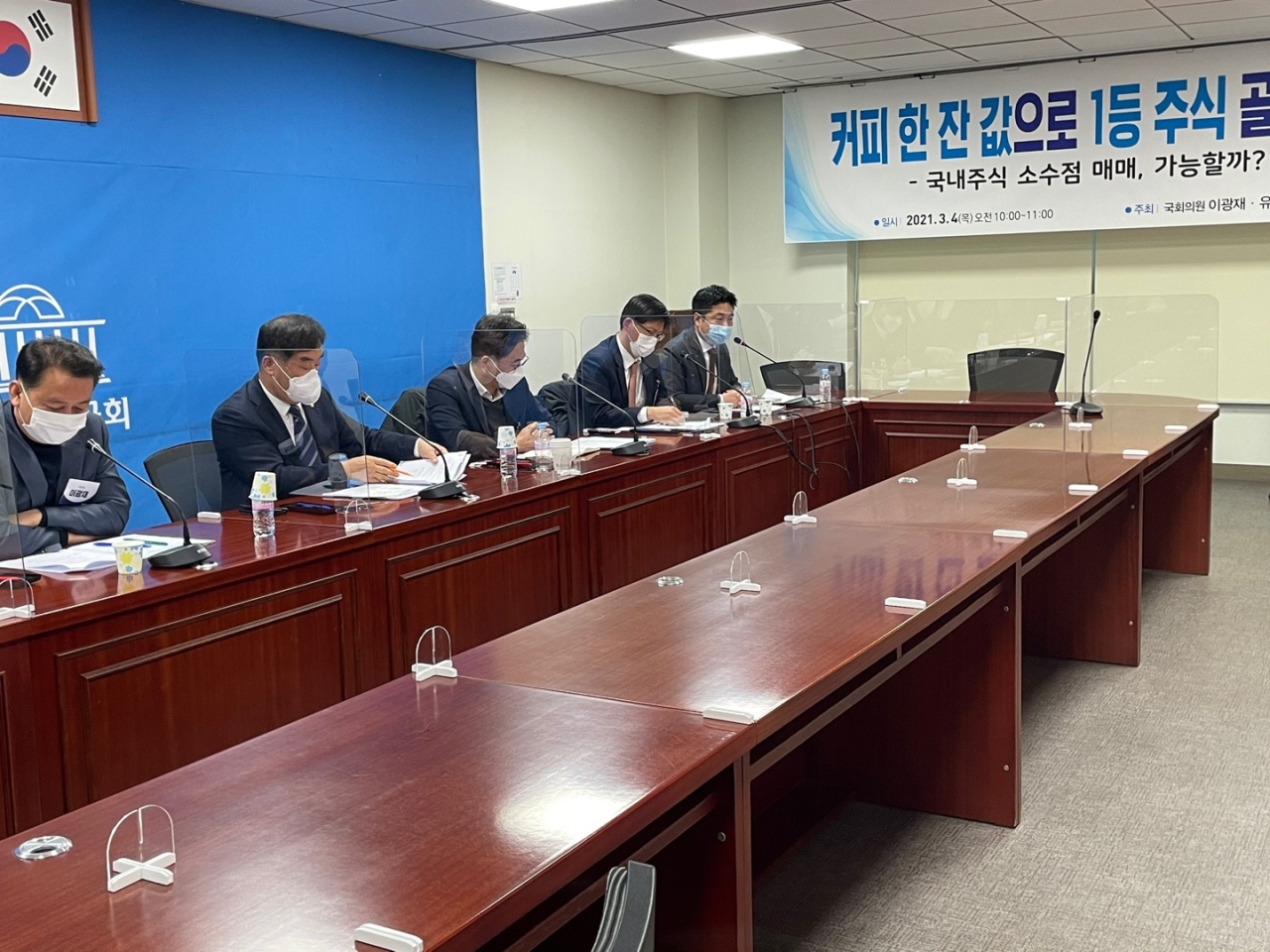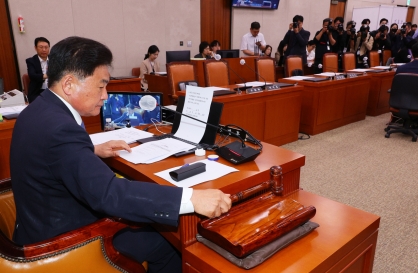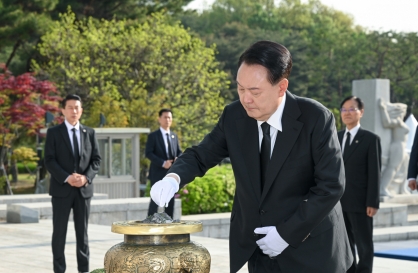South Korea should adopt fractional share investing in order to enhance financial inclusiveness and diversify asset portfolios of real estate-reliant small investors, the head of a local fintech firm suggested on Thursday.
By allowing investors to buy less than a full share, investors with a tight budget can have more chances to invest in blue-chip stocks that used to be out of their reach, Kakaopay CEO Ryu Young-joon said during a seminar held by Rep. Lee Kwang-jae of the Democratic Party of Korea.
“Risk distribution and asset allocation should not be exclusive to the deep pockets and long arms of the wealthy,” said Ryu, who also serves as the chairman of the Korea Fintech Industry Association.
“Fractional investment will create a more even playing ground for those people with limited capital and help cultivate a habit of investment even with spare change in one’s pocket,” he added.
 |
Lawmakers and industry experts gather on Thursday to discuss the introduction of fractional stock investing in South Korea. (By Park Ga-young/The Korea Herald) |
Lee Hyo-sub, head of financial industry department at the Korea Capital Market Institute, said that the smaller amount of investment could help re-direct funds heading to overseas stock markets or from property markets to domestic stock markets.
The new method, which is currently available in countries like the US and the UK, is likely to increase trading volume once it is adopted, the participants said.
Samsung Electronics’ stock price, for instance, was 2.65 million won ($2,355) before a 50:1 stock split in May 2018. After the stock split, Samsung’s stocks became more accessible to the general public, boosting trading volume by 70 percent when comparing it to a week before and after the stock split. Experts said that fractional stock investing will bring about a similar effect that Samsung’s stock split had.
For fintech companies like Kakaopay, higher trading volume and a wider investor base is a business opportunity. But the Financial Services Commission, the country’s financial regulator, has remained cautious.
“FSC is gauging safe ways of adopting the fractional trading system rather than mulling adoption itself,” said Byun Je-ho, director of Capital Market Division at FSC.
Byun said the regulator needs to consider various issues ranging from how to deal with voting rights of fractionally owned shares to how to maintain a stable real-time trading system when the trading of a portion of shares pushes up trading volumes.
Stock investment in slices is not just for financial inclusiveness, but also to innovate the local financial system and to diversify asset portfolios of small investors, Ryu and other panelists said.
“Just like the country’s manufacturing industry, we can make our financial industry world class by trying innovative financial system like fractional stock investing,” Ryu said, adding that it might take two or three years to legalize it.
Noting that South Koreans have a tendency to focus heavily on real estate and cash, they said their portfolios need to be diversified taking into consideration the ultra-low interest rate and tepid economic growth. Rep. Lee also said that despite the recent spike in stock investments, individual investors are left out due to their tight budget.
According to a 2014 study compiled by the Korea Financial Investment Association, 75 percent of the country’s household assets are pooled in real estate, much larger than the 30 percent in the US and Japan’s 40 percent.
(
gypark@heraldcorp.com)






![[KH Explains] Hyundai's full hybrid edge to pay off amid slow transition to pure EVs](http://res.heraldm.com/phpwas/restmb_idxmake.php?idx=644&simg=/content/image/2024/04/18/20240418050645_0.jpg)

